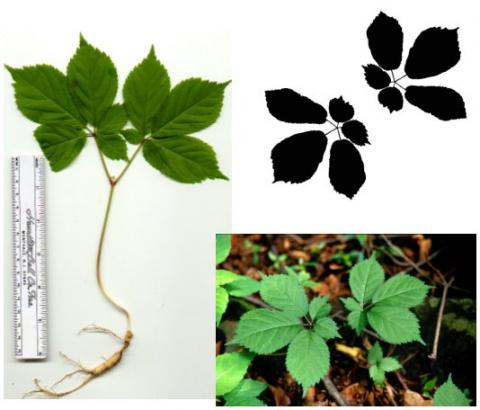Poaching "sang" in Great Smoky Mountains National Park rewarded two North Carolina men with time in jail and fines.
"Sang" is slang for ginseng, an herb that grows in Eastern forests and is valued by many for its supposed curative, and supposed aphrodisiacal, powers. For Jerry Farmer and Larry Johnson, though, all it produced was jail time.
The 24-year-old Farmer, of Canton, North Carolina, and the 46-year-old Johnson, of Clyde, North Carolina, were convicted and sentenced in federal court on January 22. Johnson was convicted of illegally digging American ginseng, and both were convicted for failure to obey a lawful order given by a U.S. Park Ranger, according to park officials.
The two men had pleaded not guilty to the poaching and failure to obey lawful order charges. But after a bench trial Johnson was found guilty of digging ginseng and was sentenced to 30 days in jail and fined $500. He was also found guilty of failing to obey a lawful order from a law enforcement officer and sentenced to 15 days in jail and fined $500. Farmer was found not guilty on the ginseng charge but guilty of failure to obey a lawful order and sentenced to 15 days in jail and fined $800.
According to the park, in July 2008 Johnson and Farmer were seen in the Cataloochee area of the Great Smoky Mountains National Park in an area little used for hikers. A ranger witnessed Johnson digging ginseng, and when Johnson and Farmer left the woods heading for their truck he ordered them to stop, the park said in a release this week.
Instead they continued to their truck and drove away. The ranger was able to apprehend them a short distance away but did not find ginseng roots in their possession. He was later able to back-track their movements and find 12 discarded ginseng roots and 50 holes with ginseng tops in the area in which he had detected the pair. This offense carries a maximum misdemeanor penalty of up to 6 months in jail and/or fine of up to $5,000.
Illegal harvest of plants is a serious problem in Great Smoky Mountains National Park. Ginseng poaching is a particular problem, as the plant's root commands a high price in the black market. Illegal digging has increased over the years and has put pressure on the plant’s survival. In the international and domestic legal trade market, wild ginseng can bring between $500 and $800 per pound of dried roots, according to park officials. The larger and older the root, the more profitable it is.
Park Rangers are encouraged by the sentence handed down to these two individuals to include active jail time.
"We hope that this will be a strong deterrent and discourage this illegal practice," said Chief Ranger Bill Wright. "Ginseng is now becoming rare in the wild, with the possibility of extinction, so the protection of these resources becomes ever more critical. Many areas that used to sustain patches of wild ginseng have been harvested to the point that the more mature plants (five years of age and older) that normally reseed the populations are totally gone, and the younger plants are not mature enough to reseed. "




Add comment